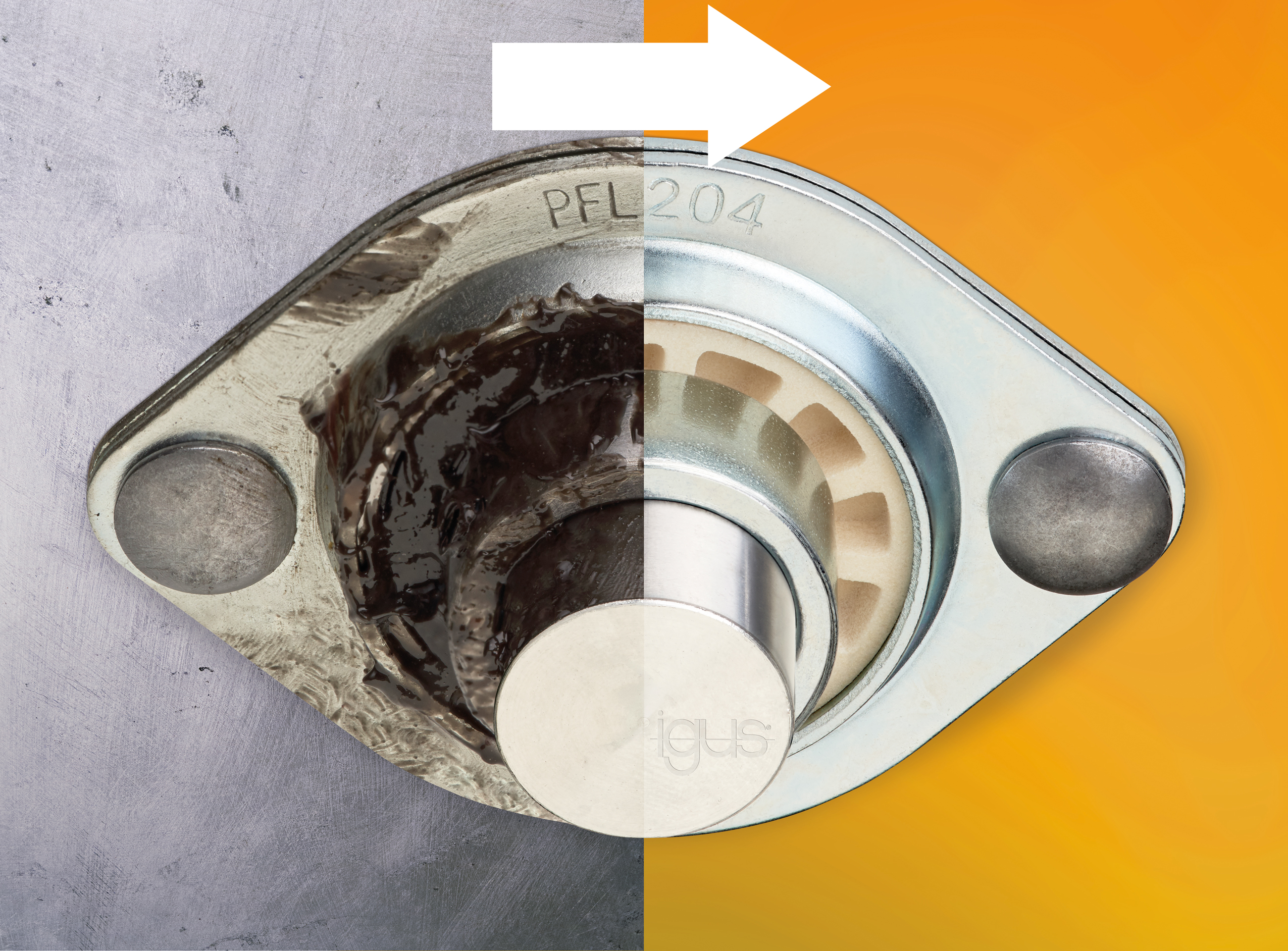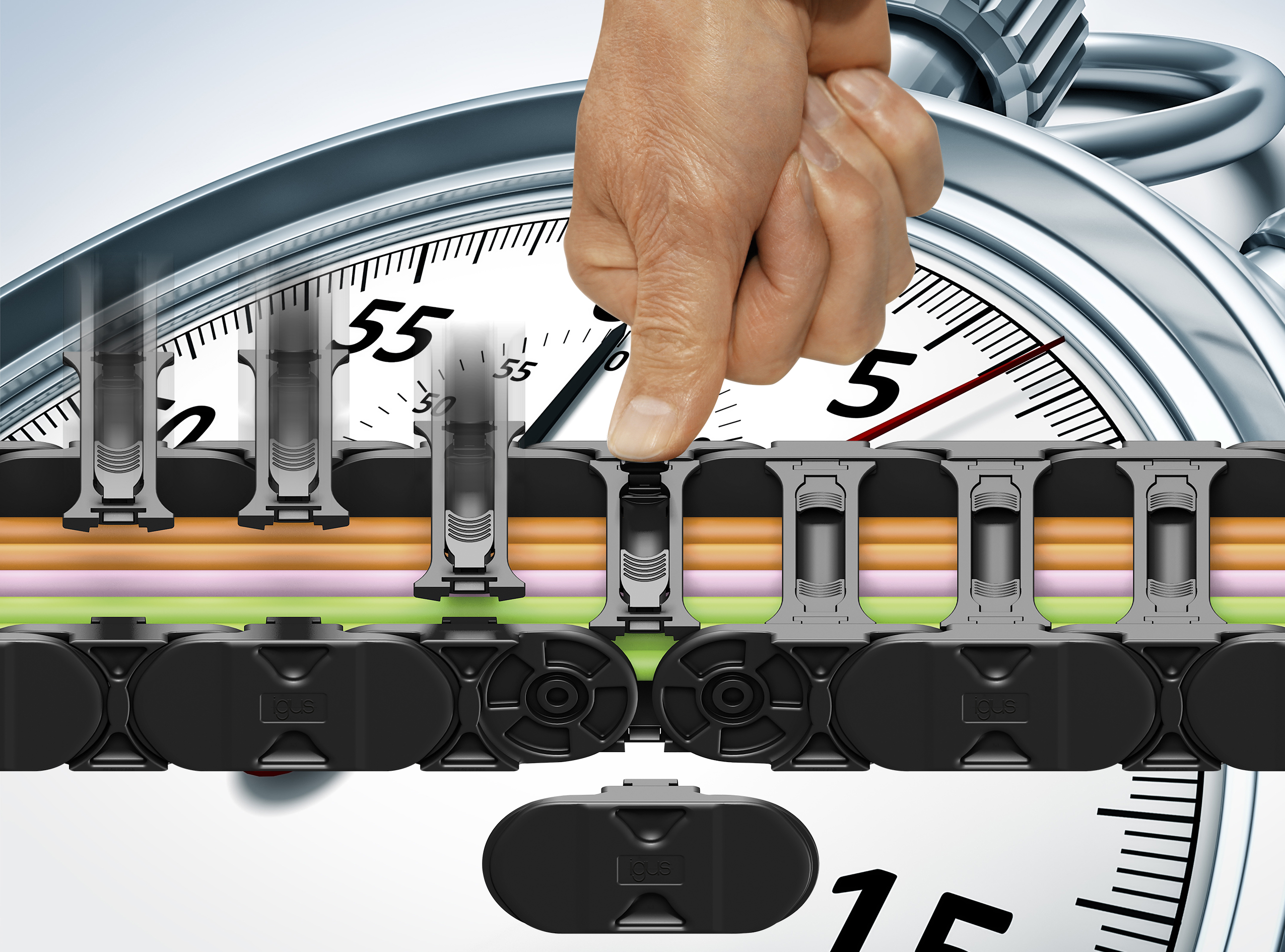From New York to Denver without lubrication: sliding instead of rolling with durable igus linear carriage
The linear carriage T20 of the drylin W series makes switching from ball guides to sliding linear guides even easier
26 JULY 2022 – igus®, a leading global manufacturer of engineered components to increase the service life of customers’ machines, has launched the T20 of the drylin® W series, a new linear carriage on the market, which has the same dimensions as many standard linear ball bearing profile guides.
This enables a quick 1:1 replacement – without any redesigns. By using drylin W, applications benefit from freedom from lubrication, a long service life, corrosion-resistance, and reduced weight.
Whether it is the sliding door of a cabinet, the seat adjustment of fitness equipment, or the bottle dispenser of a beverage machine: more and more designers are saying goodbye to typical recirculating ball bearing systems and rely on linear systems from the drylin W series from igus. A paradigm shift. This is due to the fact that the carriage does not roll, but slides very quietly over the rail – on liners made of high-performance plastic.
“Durability, freedom from maintenance and lubrication, and lightweight. The advantages of drylin W are so great that more and more designers are even making complex technical changes to their machines to implement the changeover,” says Michael Hornung, Product Manager for drylin Linear Technology at igus. “An effort we would like to spare our designers in the future.”
To meet the demand igus is launching the new linear carriage T20. The T20 linear carriage from igus is a robust and corrosion-free monoblock made of aluminum with linear plain bearing liners made of iglide® J200 for an exceptionally long service life on hard-anodized aluminum rails.
Installation dimensions identical to the ones of recirculating ball bearing guides
The new drylin W system is dimensionally interchangeable with several linear ball-bearing profiles. This enables a one-to-one replacement of the carriage, making it a convenient change from a rolling guide to a sliding guide – without any design changes.
Up to now, a comparably fast replacement with linear carriages of the same dimensions has only been possible on the drylin T system. However, in this case, users were limited to a T-guide rail.
“With the new linear carriage T20, the leap from recirculating ball bearing guides to lubrication-free and maintenance-free linear technology is significantly easier,” says Michael Hornung.
T20 achieves a running performance of 2,500 to 18,000 kilometers in the test
The drylin W range is characterized by a high degree of flexibility. This allows users to choose between different rail models. One of the most popular ones is the drylin W standard rail WS-10-40 – a robust hard-anodized, and corrosion-free linear rail made of aluminum. A rail is characterized by a low-profile design and a torsion-resistant double shaft geometry. Tests in the igus test laboratory have demonstrated this.
A linear carriage of the T20 series moved back and forth on a rail length of 1,000 millimeters in 24-hour operation – with a load of 250N and an acceleration of 10m/s2. The system achieved a running performance of 2,500 kilometers (1,553 miles) in completely dry operation. This corresponds to the distance between New York and Denver. With a load of 2 kilograms and a slow travel speed, a running performance of 18,000 kilometers (11,184 miles) was achieved.
Tribo-liners – low-maintenance, sustainable and hygienic
In addition to durability, switching to a linear guide with a liner made of high-performance plastic offers further advantages. Unlike rolling systems, the liner does not require any external lubrication. Embedded microscopic solid lubricants ensure a low-friction dry operation. The advantage is obvious. Eliminating lubricants saves time and costs for maintenance work while positively affecting the life cycle assessment. Equally sustainable, the service life of the linear carriage is virtually unlimited, as the liners can be replaced again and again with little effort. The cleaning effort is also low, as the liner simply pushes the dirt and grime off the rail. In rolling systems, on the other hand, there is often the risk that the dirt will combine with lubricating oil to form a mixture that reduces smooth running and increases the risk of contamination.
“The versatility of our drylin linear technology makes it possible to get the most out of every application,” says Matt Mowry. “In addition to aluminum, we developed a linear carriage made of stainless steel. The combination of VA stainless steel rails and linear liners made of FDA- and EU-compliant of our iglide A160 material makes our linear rails ideally suited for applications used in the food and beverage, medical, and pharmaceutical sectors.”
To learn more about the drylin® W linear carriage WW T20, click here.



